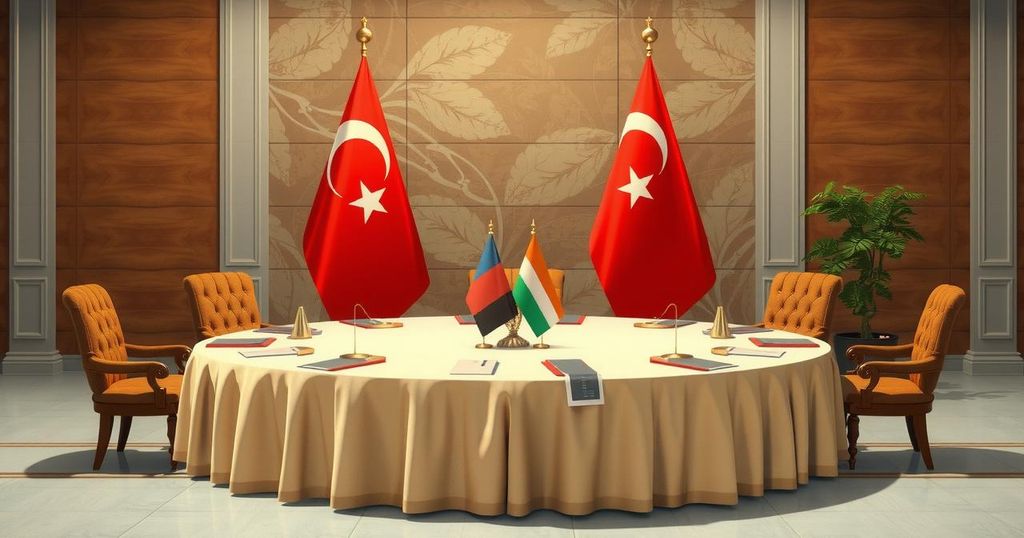Pakistan’s Special Envoy Muhammad Sadiq announced that improvements in relations with Afghanistan are anticipated, along with planned high-level visits to reduce tensions. The Senate panel discussed the significance of addressing the TTP issue, while Afghan officials expressed concerns over the treatment of refugees. Recent deportations of undocumented Afghans are part of broader immigration policies.
Pakistan’s Special Envoy for Afghanistan, Ambassador Muhammad Sadiq, apprised a Senate panel on Monday regarding anticipated improvements in Pakistan-Afghanistan relations, citing forthcoming high-level visits aimed at alleviating tensions. His attendance at the Senate Standing Committee on Foreign Affairs provided a platform to address ongoing bilateral challenges, specifically the issue of terrorist sanctuaries within Afghanistan.
Ambassador Sadiq’s insights were shared during a closed-door session led by Senator Irfan Siddiqui, who underscored expectations for revitalized dialogue between the two nations as critical discussions concerning regional developments took place. Sadiq indicated that the matter of the banned Tehreek-e-Taliban Pakistan (TTP) is being vigorously addressed with Afghan officials.
In related developments, Afghan Foreign Minister Amir Khan Muttaqi expressed concerns regarding the deportation of Afghan refugees during a meeting with Pakistan’s Chargé d’Affaires, Ubaid-ur-Rehman Nizamani, in Kabul. He urged for an end to what he termed inappropriate treatment, which is detrimental to bilateral relations, signaling a need for mutual understanding.
Discussions between both nations not only touched upon political and economic issues but also highlighted the significance of high-level exchanges. Since October 2023, Pakistan has initiated deportations of undocumented Afghans, extending to those with Afghan Citizen Cards while justifying the action as a necessity given their immigration policies.
In conclusion, Pakistan is actively seeking to mend its relationship with Afghanistan through high-level communications and addressing significant bilateral challenges such as terrorism and refugee deportations. Continued dialogue and diplomatic engagements between both countries are crucial for fostering stability and cooperation in the region.
Original Source: tribune.com.pk




